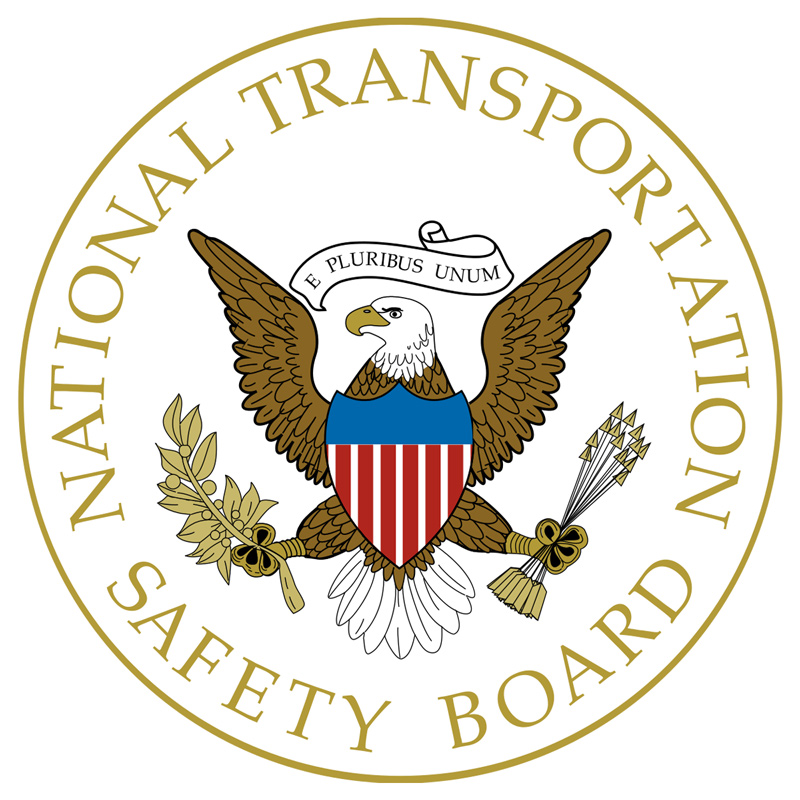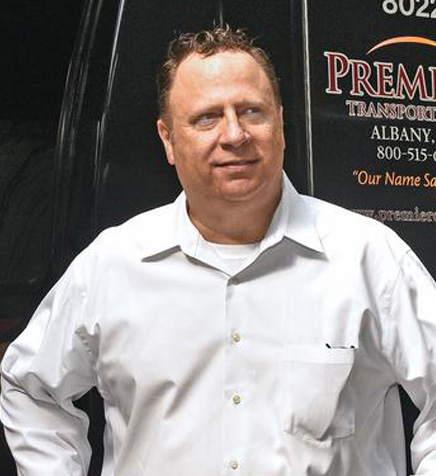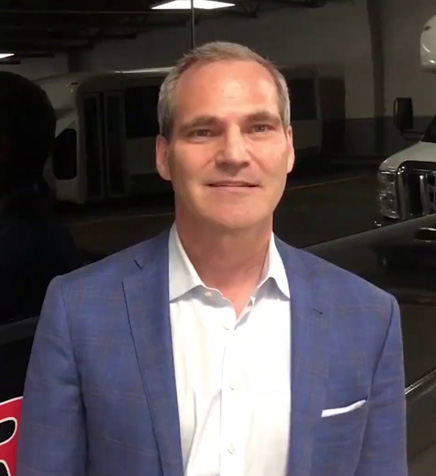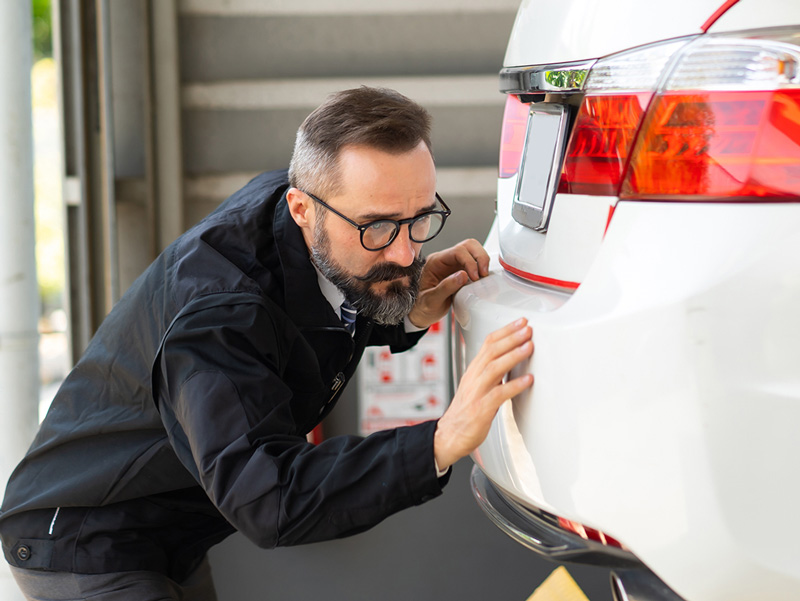Aftermath: The NYS Stretch Safety Task Force Releases Their Report
- Details
BY SUSAN ROSE
 It was the fall of 2018 when 20 young lives were lost in Schoharie, New York, a sleepy rural hamlet a few dozen miles from Albany, in one of the state’s deadliest transportation accidents. The 17 passengers and driver were heading to a brewery for a birthday party, and in a last-minute pinch, they rebooked with Prestige Limousine Service and boarded a 2001 Lincoln Excursion limousine—a super stretch well past its prime even in 2018. In the months prior, the vehicle had been placed out of service by the DOT after it failed numerous mechanical inspections, including for brakes, which ultimately was determined to have led to the crash. There were no skid marks, according to the National Transportation Safety Board (NTSB) report, and the vehicle came to crumbled rest in a ditch at the end of a steep downgrade where Routes 30 and 30A meet. Two bystanders were also killed when the Excursion struck another vehicle in the parking lot of the Apple Barrel Store + Café.
It was the fall of 2018 when 20 young lives were lost in Schoharie, New York, a sleepy rural hamlet a few dozen miles from Albany, in one of the state’s deadliest transportation accidents. The 17 passengers and driver were heading to a brewery for a birthday party, and in a last-minute pinch, they rebooked with Prestige Limousine Service and boarded a 2001 Lincoln Excursion limousine—a super stretch well past its prime even in 2018. In the months prior, the vehicle had been placed out of service by the DOT after it failed numerous mechanical inspections, including for brakes, which ultimately was determined to have led to the crash. There were no skid marks, according to the National Transportation Safety Board (NTSB) report, and the vehicle came to crumbled rest in a ditch at the end of a steep downgrade where Routes 30 and 30A meet. Two bystanders were also killed when the Excursion struck another vehicle in the parking lot of the Apple Barrel Store + Café.
 The public was clearly and rightfully raw, and state and federal officials demanded action. The industry’s reaction was equally visceral, a mix of sadness and anger that one of their own had been so cavalier with the profound responsibly of passenger safety.
The public was clearly and rightfully raw, and state and federal officials demanded action. The industry’s reaction was equally visceral, a mix of sadness and anger that one of their own had been so cavalier with the profound responsibly of passenger safety.
Just three years earlier in July 2015, a limousine carrying eight women on their way from a winetasting on Long Island was involved in another serious and fatal crash that claimed the lives of four and seriously injured the other four. Their driver made a U-turn at a blind intersection known to be dangerous, which led to his indictment for involuntary manslaughter, although the charges were later dropped. The driver of the pickup truck who plowed into the stretch limousine admitted to being under the influence of alcohol and pleaded guilty to a DWI. The state passed a law making it illegal for stretched vehicles to make U-turns at intersections.
The circumstances surrounding these crashes were different—the Schoharie crash was a result of deficient vehicle maintenance and a bevy of other infractions, including maintenance records fraud, while the Long Island driver was reckless in his judgment—but the avoidable accidents had taken the lives of two dozen New Yorkers. The implications of both were widespread, with legislation proposed not only in the state but federally.
 David Brown of Premiere Transportation
In 2020, the State of New York established the Stretch Limousine Passenger Safety Task Force, an 11-member panel that was meant to study safety measures pertaining to the operation of stretch limousines in the Empire State. The Task Force comprised various state agencies, including officials from the New York DOT, Department of Motor Vehicles, and State Police; David Brown of Premiere Transportation and Ed Stoppelmann of Red Oak Transportation (which was acquired by Leros Point to Point) as industry representatives; and several members of the victims’ families.
David Brown of Premiere Transportation
In 2020, the State of New York established the Stretch Limousine Passenger Safety Task Force, an 11-member panel that was meant to study safety measures pertaining to the operation of stretch limousines in the Empire State. The Task Force comprised various state agencies, including officials from the New York DOT, Department of Motor Vehicles, and State Police; David Brown of Premiere Transportation and Ed Stoppelmann of Red Oak Transportation (which was acquired by Leros Point to Point) as industry representatives; and several members of the victims’ families.
“If we had cross-agency communication and stricter enforcement of the law, this would not have happened.” – David Brown of Premiere TransportationAfter seven Zoom meetings throughout 2022, a much-anticipated final report was issued by the Task Force in October last year, which highlighted 16 action points to ensure that stretch limousines were safe for New York’s roadways. As of press time, the legislature was considering many of those recommendations: age/mile limits of vehicles, shoulder belt requirements with a driver warning system, installation of side anti-intrusion bars, emergency roof hatches, and enhanced training with annual exams and driving record reviews, to name a few (the entire report can be accessed here: bit.ly/3ZbZpxb).
“First and foremost, it was always about the victims. I can’t say it enough: my heart goes out to those families. I visited the crash scene and drove the route several times ... it’s very sobering. It was an honor to be on this committee,” says Brown.
Brown and Stoppelmann, who both have decades of experience, faced a mission of balancing compassion for the families while educating a panel that was largely unfamiliar with the industry and the variety of regulations already in place aimed to prevent such tragedies. They explained issues such as the safety measures that responsible operators were already required to meet, or the construction of limousines by reputable builders as well as the QVM and CMC standards that they abided by, or the mandatory insurance coverage. They also worked with their industry peers, including the leadership of the Limousine, Bus, Taxi Operators of Upstate New York and the National Limousine Association (who were also pitching in behind the scenes) as well as various manufacturers. They spent countless hours collecting documentation to help the committee with recommendations with some additional assistance from ex-DOT inspector Ron Barton—while running their own businesses.
For Brown, he felt it started with better inter-agency communication and real-time enforcement. “In one of my speeches to the panel, I told them that we are in one of the most regulated states in the most regulated country in the world [for chauffeured transportation]. What we need to do is think smarter and communicate better. I felt we had enough laws, but had there been communication between these agencies then this bad guy [Nauman Hussain, operator of Prestige Limousine] wouldn’t have been able to get that vehicle back on the road. That particular limousine had been flagged so many different times. Hussain went out of his way to skirt the law, and I have the stacks of paperwork on my desk to show not only his negligence but blatant disregard for the law. When these vehicles got flagged for failing inspection, the State Police should have been there the next day removing the plates.”
A week after the Schoharie accident, Brown says that the State Police confiscated more than 50 pairs of plates from other stretch vehicles that had violations operating in the state. “The New York State DMV, DOT, and State Police had the authority before the accident to take this guy’s plates because he was a repeat offender, but it never happened. That was the issue that kept coming up over and over again, that the DMV, DOT, and Police should share information in real time. I get very emotional about this because, again, 20 people died in that accident. If we had cross-agency communication and stricter enforcement of the law, this would not have happened.”
 Ed Stoppelman of Red Oak Transportation, now part of Leros
The New York State Police and the NTSB investigated the accident (with some initial conflicts of jurisdiction between the agencies), which led to the arrest of Nauman Hussain, who was running Prestige for his father, Shahed, who had returned to his home country of Pakistan. The various reports found among many infractions was a lack of seat belts and usage, which may have prevented some of the deaths in the “survivable space” of the stretch that wasn’t damaged. The modified vehicle also lacked heavy-duty components required for safe function, including amplified brakes. The OEM brakes were designed for the base Excursion’s weight and seating capacity, not necessarily the 34-foot version that was carrying easily three times more weight. One of the passengers in the fateful vehicle had even texted a family member that the brakes were smoking and the vehicle was coasting, while another complained about the noisy engine. Several of Prestige’s drivers, including the chauffeur who passed away in the crash, refused to drive the vehicle before the accident.
Ed Stoppelman of Red Oak Transportation, now part of Leros
The New York State Police and the NTSB investigated the accident (with some initial conflicts of jurisdiction between the agencies), which led to the arrest of Nauman Hussain, who was running Prestige for his father, Shahed, who had returned to his home country of Pakistan. The various reports found among many infractions was a lack of seat belts and usage, which may have prevented some of the deaths in the “survivable space” of the stretch that wasn’t damaged. The modified vehicle also lacked heavy-duty components required for safe function, including amplified brakes. The OEM brakes were designed for the base Excursion’s weight and seating capacity, not necessarily the 34-foot version that was carrying easily three times more weight. One of the passengers in the fateful vehicle had even texted a family member that the brakes were smoking and the vehicle was coasting, while another complained about the noisy engine. Several of Prestige’s drivers, including the chauffeur who passed away in the crash, refused to drive the vehicle before the accident.
“Brown and Stoppelmann, who both have decades of experience, faced a mission of balancing compassion for the families while educating a panel that was largely unfamiliar with the industry ...”In the crash report, it was noted that Hussain missed a DOT hearing in early 2018 after the failed inspection and was fined a few hundred dollars, but no further action was taken (although DOT authority already existed to cease the company’s operations). A few months later, the vehicle was cited by a state trooper on the highway for its missing DOT number but was not impounded.
“He took his out-of-service stickers off and ran vehicles through regular inspections instead of DOT,” says Brown about Hussain. “We’re talking about a vehicle that was going 100 miles an hour down a steep grade to zero in a second. It super-heated those brakes beyond capacity.”
Hussain’s arrest for criminally negligent homicide ended in a plea deal with community service and probation, but after the presiding judge retired, the sentencing judge insisted that it include jail time. Hussain’s lawyers have argued that removing the stickers did not lead directly to crash and implored that the original plea deal be reinstated. As of press time, the courts were weighing whether the case would proceed to trial.
 The convening of the Task Force wasn’t meant to establish guilt or point fingers, although it wasn’t entirely devoid of politics, according to Brown. The members of the committee were sworn in as officers of the state and were required to pass criminal background checks and be fingerprinted prior to being approved all the way up to the governor. Brown was endorsed by local Assemblyman John McDonald of N.Y.’s 108th district.
The convening of the Task Force wasn’t meant to establish guilt or point fingers, although it wasn’t entirely devoid of politics, according to Brown. The members of the committee were sworn in as officers of the state and were required to pass criminal background checks and be fingerprinted prior to being approved all the way up to the governor. Brown was endorsed by local Assemblyman John McDonald of N.Y.’s 108th district.
“We were there to make recommendations to the state assembly, senate, and governor for the stretch limousine industry. Our job wasn’t to assign blame, but to improve safety and make the industry better,” says Brown. “What Ed and I tried to do is encourage the enforcement the laws that already existed instead of creating new ones. The two accidents were so preventable, if people had just done things the right way. We also had to consider the legal operators—new laws wouldn’t improve or increase safety but could make it difficult to run our businesses without having to raise prices.”
Brown says that committee members focused heavily on driver training for stretch limousines, including the NTSB’s recommendation that those drivers instruct passengers on the importance of using seat belts. NYS already had a special requirement for bus drivers in place called Article 19-A, which included annual background checks, physicals, written and on-the-road tests, and a review of driving records, which Brown suggested to the committee should be extended to stretch drivers.
“If something’s going right, then let’s not reinvent the wheel. Use the 19-A training that’s already in place for stretch limousine drivers as well,” he says. “Let’s not add more regulations for the overregulated. But on the other hand, if there’s something we can do to keep people like this slimeball out of the business and save lives, we’re on board with that.”
The Task Force also had to weigh the age and mileage of stretches in a state where many mom-and-pop operations run their old-style limousines on weekends for proms and weddings. While operators wanted a more generous 15-year/500,000-mile allowance, the state was pushing for much lower limits at 8 years or 200,000 miles. They compromised at 350,000 miles or 10 years before the vehicle had to be retired—with all required maintenance and safety inspections along the way, of course—with exceptions only for collectable vehicles that aren’t used for hire.
Brown runs a few stretches, but he also sees the writing on the wall. “I have a vested interest, but I also know that these stretches are going the way of the dodo bird. Most manufacturers are focusing on limo buses and Sprinter vans that are built to hold that weight. They’re not stretched or cut in half. They’re DOT regulated. Insurance companies are moving away from stretches. At the end of the day, there are so few people left out there running these vehicles that it might take care of itself.” [CD0323]

